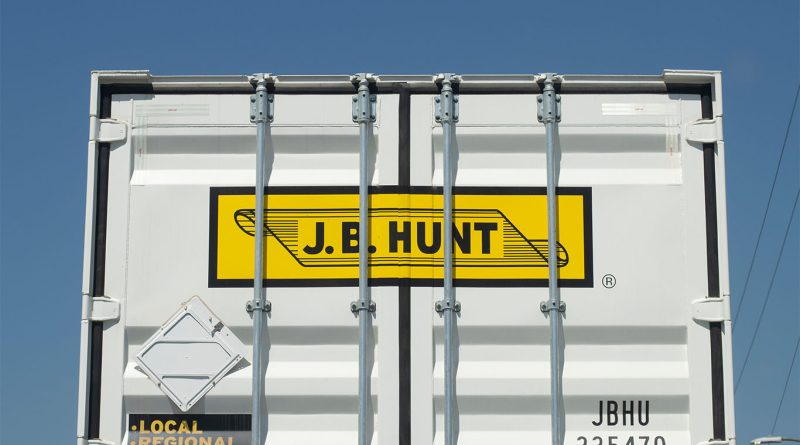J.B. Hunt reports flat revenue in Q2 as costs squeeze margins
Subscribe to our free newsletter today to keep up to date with the latest transportation and logistics news.
J.B. Hunt Transport Services reported second-quarter results showing revenue in line with the prior year, but profitability weakened amid cost pressures. The company posted operating revenue of $2.93 billion, unchanged from Q2 2024. Net earnings totaled $128.6 million, resulting in diluted earnings per share of $1.31, slightly below analyst expectations.
Operating income declined 4 percent year over year to $197.3 million, due to rising costs tied to driver wages, insurance, medical claims, and equipment. The result is part of a broader pattern in transportation where higher expenses are eroding earnings, even as volume remains relatively stable. Market response was cautious, noting that while revenue held, margin softness in areas such as Final Mile and Dedicated Services signaled persistent inefficiencies.
Segment performance reflects uneven growth across business lines
J.B. Hunt’s five segments delivered varied results, with core services performing steadily while others struggled.
Intermodal revenue grew 2 percent to $1.44 billion, driven by a 6 percent increase in volume. However, lower yield per load and higher costs led to a 4 percent decline in operating income to $95.7 million. Pricing pressure and mix changes contributed to the yield drop.
Dedicated Contract Services held revenue flat at $846 million. Productivity gains helped offset a 3 percent drop in truck count, but operating income declined 3 percent to $93.7 million as cost inflation took its toll.
Integrated Capacity Solutions reported a 4 percent revenue drop to $260 million. Despite a 6 percent gain in revenue per load, volume declined 9 percent. Still, the segment narrowed its loss to $3.6 million, an improvement over the $13.3 million loss in Q2 2024.
Final Mile Services underperformed, with revenue falling 10 percent to $211 million. Operating income dropped nearly 60 percent to $8 million, largely due to weak demand and fixed cost burdens.
Truckload operations saw revenue increase 5 percent to $177 million on a 13 percent rise in volume. However, cost increases eroded profitability, leading to a modest drop in operating income.
Inflationary costs drag on margins despite stable operations
Rising costs were a consistent theme across all segments. Wages, insurance premiums, and medical claims all contributed to elevated expenses. Executives noted that pricing remained relatively stable, but gains in volume were not enough to offset cost increases.
Equipment costs were highlighted as a growing concern, with higher purchase prices and extended maintenance cycles increasing capital demands. Volatility in claims-related costs also compressed margins, particularly in driver-heavy and last-mile operations. These factors weighed heavily on investor sentiment, especially after several quarters of anticipated margin recovery that has yet to materialize.
Efficiency and technology investments target cost savings
In response to these challenges, J.B. Hunt announced a $100 million cost reduction goal by the end of 2026. Key initiatives include equipment utilization improvements, route optimization, and broader use of automation.
The company continues to expand its 360° technology platform to improve asset visibility, pricing accuracy, and capacity matching. These efforts are central to its strategy of improving efficiency without sacrificing service levels.
Capital discipline remains a priority. J.B. Hunt repurchased 2.4 million shares in Q2, returning $319 million to shareholders. The company has $335 million remaining under its current repurchase authorization.
While the company declined to issue formal guidance for the second half of 2025, executives expressed cautious optimism. Customer demand appears stable, with signs of improvement in e-commerce and industrial sectors, though pricing is expected to remain tight.
Sources:
